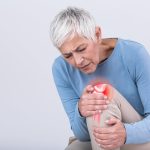Read Time:2 Minute, 43 Second
- What is addiction?
- Addiction, also known as dependence, is when someone finds it hard to stop doing something that makes them feel good. You can have a physical or psychological addiction, or both.
- Physical dependence means that withdrawal symptoms appear if you stop the addictive substance or behaviour.
- Psychological addiction occurs when you believe you need the addictive substance or behaviour to function. You might think you need the substance at certain times. For instance, to be social at a party or to unwind after work. Or you might think you need it all the time.
- What is withdrawal from addiction?
- Withdrawal is the process of cutting out, or cutting back on addictive substances. Addictive substances can include some medicines, like opioids or benzodiazepines, or drugs or alcohol. Some behaviours, such as gambling, are also addictive.
- When your body is getting used to working without the substance or behaviour you might have symptoms. The symptoms can be mild or they may be serious.
- Knowing what these symptoms are can make quitting easier for you. It can also make it easier for people who are supporting you.
- What are the symptoms of addiction withdrawal?
- Withdrawal symptoms can be different for different people and can be mild or severe. Symptoms depend on:
- the type of substance/behaviour and how long you used it for
- your age
- your physical health
- your mental and emotional state
- the withdrawal process used
- Symptoms can include:
- not being able to sleep
- irritability
- changing moods
- depression
- anxiety
- aches and pains
- cravings
- tiredness
- seeing things that are not there (hallucinations)
- nausea and vomiting
- diarrhoea
- sweating
- shaking
- You may also be hot and cold, have goosebumps, or have a runny nose
- Severe withdrawal symptoms, especially for drugs and alcohol, can include:
- paranoia
- confusion
- tremors
- disorientation
- seizures
- Symptoms can last for a few days or weeks, but they will stop with time.
- When should I see my doctor?
- You might need medical support when you are quitting to make sure you are safe.
- Always talk about withdrawal with your doctor or with an alcohol and other drug treatment service first. This is very important if you are withdrawing from using alcohol, GHB (gamma hydroxybutyrate), benzodiazepines or ketamine.
- How are addiction withdrawal symptoms treated?
- There are public and private services that provide withdrawal programs. The aim of withdrawal management is to:
- treat the symptoms of withdrawal
- stop any complications
- plan treatment after the symptoms of withdrawal have become less
- Medicines can be given to help with:
- nausea and vomiting
- diarrhoea
- abdominal cramps
- headaches and muscle aches
- shaking/tremors
- You can take part in a withdrawal program in:
- a residential detox unit or in a hospital
- at home
- Detoxing or withdrawing without support can lead to relapse. It can also be dangerous to your health. Counselling, or support from friends or family, can help.
- How can I help someone through withdrawal?
- Overcoming addiction can be hard. It is important to start the process in a safe and secure environment, such as at home, a detox facility or hospital.
- If you need to support someone through withdrawal, talk to a doctor (you can search for a doctor in your region here), another health professional, or a drug and alcohol service before starting.
- It is important to look after yourself when caring for someone with an addiction. This includes eating and sleeping well, exercising, seeing friends and taking a break.
- For more information about caring for someone, go to Carer Gateway .


